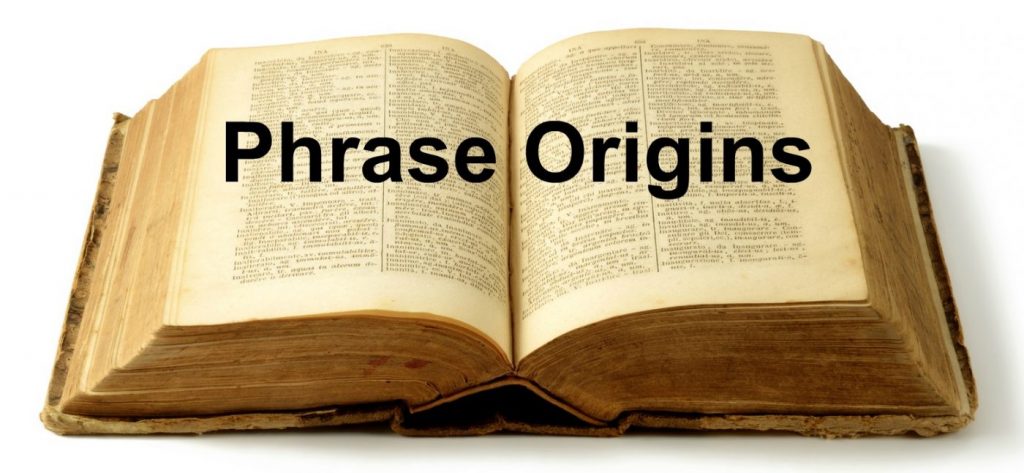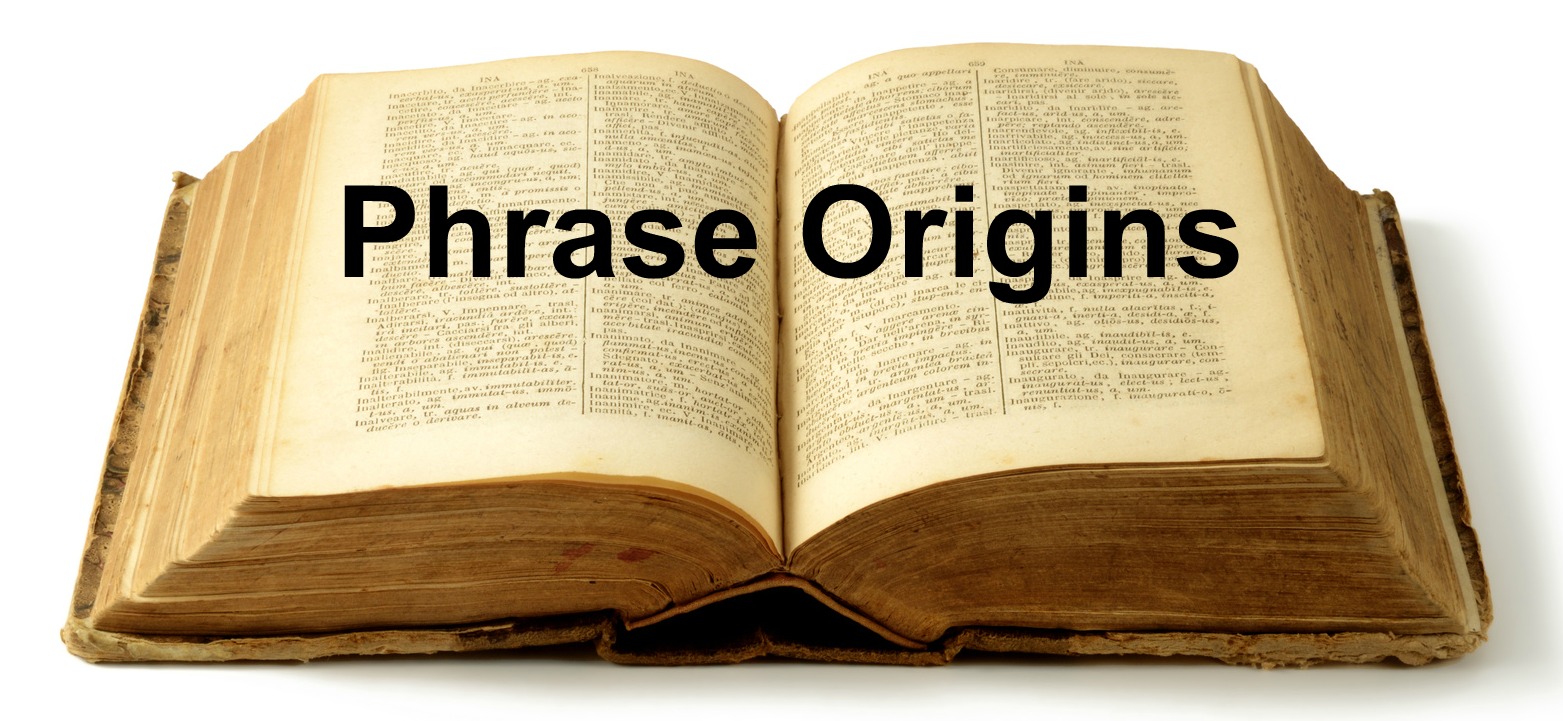Here are the origins of some common phrases.
ON THE LAM
Meaning: To be on the run, especially from the police
Origin: “American slang since the latter part of the 19th century. The root of lam is the Old Norse word lamja, meaning to ‘make lame,’ and the original meaning, when it first appeared in English back in the 16th century, was to ‘beat soundly.’ The change in the meaning from beat to run away probably echoed another slang term for running away—beat it. To beat it or lam it is to rapidly beat the road with one’s feet…by running.” (From The Word Detective, by Evan Morris)
STRAW POLL
Meaning: An unofficial vote indicating the trend of opinion on a candidate or issue
Origin: “The use of the phrase began in America in 1824 when reporters from the Harrisburg Pennsylvanian questioned a sample of voters in an attempt to predict the overall result. The findings proved accurate and were considered such a success that the idea caught on and has been used in almost every election ever since. The actual wording of straw poll comes from the practice of throwing a handful of straw into the air to determine the direction of the wind.” (From Red Herrings and White Elephants, by Albert Jack)
THE PITS
Meaning: The worst
Origin: “This disparaging phrase was first linked with Woody Allen in the late 1970s, but was made famous by the 1981 Wimbledon men’s singles tennis champion, John McEnroe. The Wimbledon umpire who failed to accept his outbursts in the spirit in which he offered them was compared to that most unsavory location, ‘the armpits of the world.’” (From To Coin a Phrase, by Edwin Radford and Alan Smith)
HOCUS POCUS
Meaning: Expression used by magicians while performing a trick
Origin: “Before performing sleight of hand, conjurors usually mutter the magical words ‘hocus pocus.’ But they never explain that nonsense phrase. A belief once existed that it came from Latin hoc est corpus, meaning ‘Here is my body,’ used to mock the Roman Church’s mass (in which bread is changed into the body of Jesus).
Word-followers now believe that the phrase was false or invented Latin, fabricated by magicians to sound impressive as they worked their tricks—but the words had no meaning at all. Although the phrase consists of meaningless rhyming sounds, from hocus came the usable words hoax and the slang term hokum, meaning ‘nonsense.’” (From The Story Behind the Word, by Morton S. Freeman)
TO SHELL OUT
Meaning: To hand over money or payment of any kind
Origin: “Money was scarce in Colonial America. Not enough coins and bills were in circulation to meet the demands of commerce. As a result of this shortage, Indian corn was used as a medium of exchange. All payments were in the form of shelled corn. Planters usually left it on the cob until the time came to meet an obligation. So when a bill was due, it was time to get the family together for a husking, a ‘shelling out.’ This practice became so strongly attached to the idea of payment that a person handing over anything of value is said ‘to shell out.’” (From I’ve Got Goose Pimples, by Marvin Vanoni)
BATTING YOUR EYELASHES
Meaning: To flutter one’s eyelids, usually in a flirtatious manner
Origin: “It has nothing to do with bats flapping in a cave, or someone ‘gone batty.’ Batting in this case comes from falconry in Tudor times. According to a book written in 1615: ‘Batting, or to bat, is when a Hawke fluttereth with his wings either from the perch or the man’s fist, striving, as it were, to fly away.’ The old word had long been used by sportsmen, and some American with a lot of Sprachgefûhl—‘feeling for language’—found a fresh use for it in the 1880s.” (From The Facts on File Encyclopedia of Word and Phrase Origins, by Robert Hendrickson)










